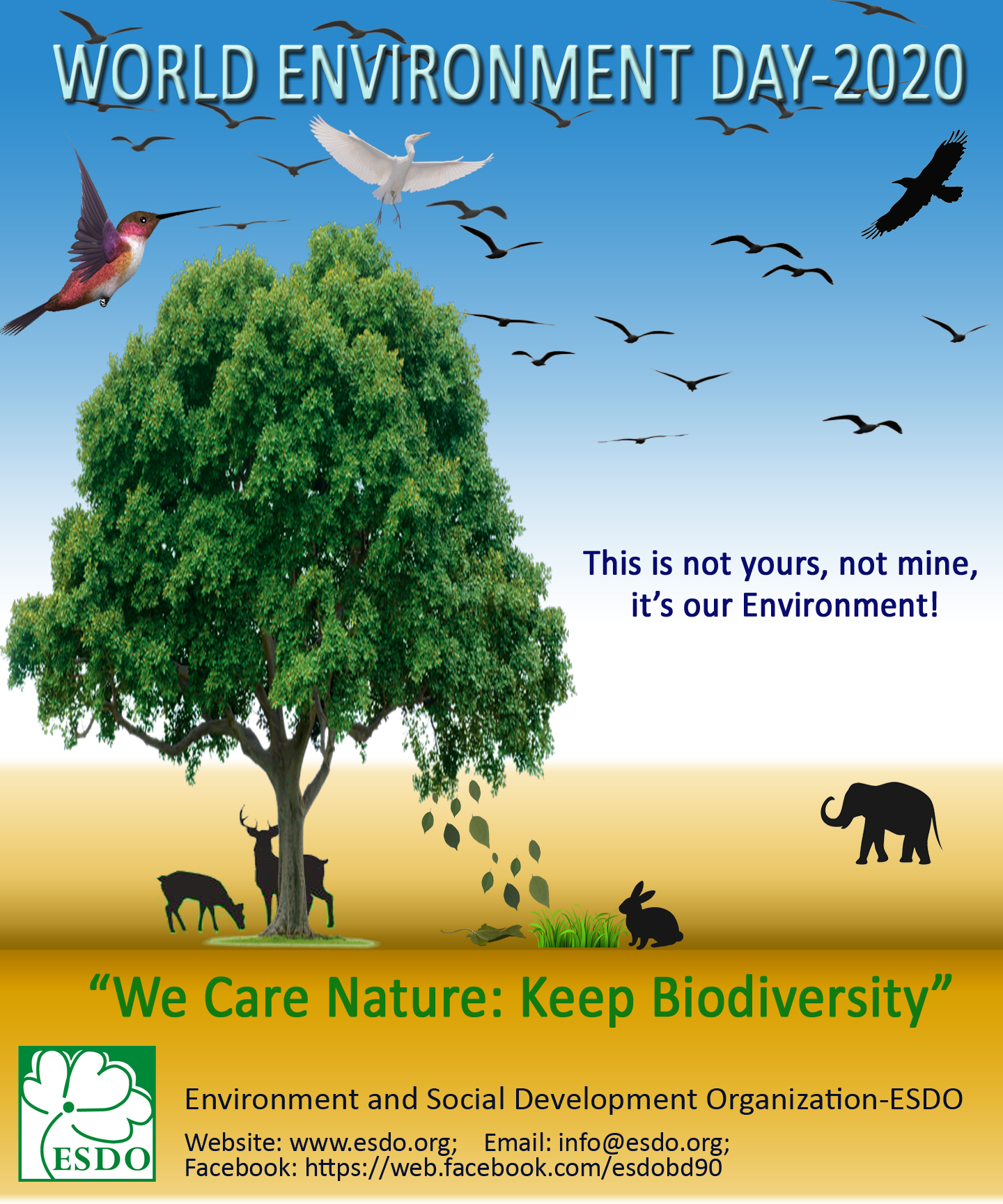World Environment Day: “We Care Nature: Keep Biodiversity”

4th June, 2020, Dhaka: 5th June, World Environment Day 2020, “Celebrate Biodiversity”. Due to covid-19 epidemic the celebration is happening digitally and all the activities are taken place within limit all over the world. This year millions of people in more than 100 countries are celebrating World Environment Day in online platforms. Environment and Social Development Organization – ESDO has also kept its activities within limit and prepared an
awareness poster related to this year theme, “We Care Nature: Keep Biodiversity”.
Every year around the globe World Environment Day is observed on 5th June, being the largest annual event for positive environmental action. The first international conference on environmental issues was inaugurated in 1972, following the UN Conference on the Human Environment in Stockholm, Sweden on 5-16 June. After its inauguration on 5 June 1974, millions of people around the world have engaged in thousands of activities in order to raise awareness and create political support for ozone depletion, hazardous pollution, desertification and global warming.
This year’s theme “Celebrate Biodiversity” which accounts for a concern that is both urgent and existential. Recent events, from bushfires in Brazil, the United States, and Australia to locust infestations across East Africa – and now, a global disease pandemic – demonstrate the interdependence of humans and the webs of life, in which they exist.
Biodiversity is the backbone of all life on land and under water. It affects every aspect of human health. Changing or removing one element of this web affects the whole system of life, and can have negative consequences. Human actions, including deforestation, wilderness racism, aggressive agriculture, and climate change acceleration have driven nature beyond its boundaries. If we proceed down this path, the loss of biodiversity would have significant
consequences for humanity such as the collapse of food and health systems.
United Nations Conference on Climate Change (COP25) in Madrid, Spain has stated that “Stressed that with one million species of plants and animals facing extinction, there has never been a more important time to focus on the issue of biodiversity.”
The emergence of COVID-19 has highlighted the fact that we destroy the mechanism that sustains human life when we destroy biodiversity. It is estimated today that around one billion cases of disease and millions of deaths occur annually from diseases caused by coronaviruses worldwide; and about 75 per cent of all emerging infectious diseases in humans are zoonotic, meaning they are transmitted to humans by animals.
ESDO urge everyone to reflect on the environment and choices that harm our environment and to embrace healthy and environmentally friendly lifestyles which will also save our own lives.
Environment and Social Development Organization (ESDO)
House # 8/1, Level# 5, Block# C, Lalmatia
Dhaka 1207, Bangladesh.
For further information, please contact;
Siddika Sultana
Email: siddika@esdo.org
Samina Khondaker
Tel: +880-2-9122729
Cell: +880-1731779953
Email: info@esdo.org
Read More
.

